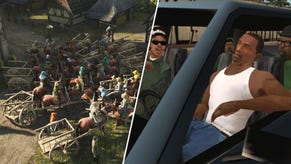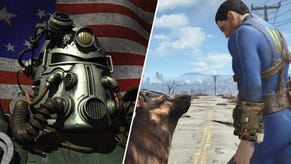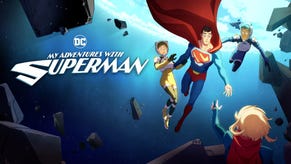McNamara explains L.A. Noire crunch, says reputation of being a "bully" unwarranted
Former Team Bondi boss Brendan McNamara has defending the studio's crunch time during L.A. Noire's development, and believes if there was a "smarter way of doing it" all developers should "do it a smarter way."
Speaking in an interview with Eurogamer, McNamara admitted that in order to meet production milestones 110 hour work weeks occurred, but they were never mandatory, and in saying this, he isn't "justifying crunch."
"I remember just before E3, there was a story in the LA Times about Naughty Dog working there days straight, and they were walking around like drunks in the office and people were screaming at each other," he said. "When you've been up for three days you do that.
“Nobody stayed up for three days making L.A. Noire. I don't even think there was an all-nighter on it. I'm not saying that stuff is good and people should do it anyway. But they were doing that, and they said it was going to be like that crunch until the end of the game. In America, people expect you to work hard to see results
“Yeah, 110 hour weeks are tough. But not many people worked 110 hour weeks making LA Noire, I can tell you that. And it wasn't mandatory. Yeah, it was hard, and it was brutal, but I would say, most of those triple-A games, when you aren't sure of what the technology is, and you aren't sure what the process is, it's going to be pretty difficult. Time's a finite thing. You can't extend it forever. We certainly had plenty of time.”
In the interview, McNamara also addressed his reputation as "the bully of the games business" which he said was unwarranted, especially since it was derived from people speaking anonymously.
“When I read about Steve Jobs - I don't know if you're reading his authorised biography - I've never said anything like that to people," he said. “I don't think I am a bully. I've got people who've worked with me for sixteen years.
“The way I look at it now is that people can say whatever they like, and they will. So I might as well just wear it. That's where it's at. The part that annoys me is people do it anonymously. I'd rather they just ring me up and tell me to f**k off, right? Or people want to print your company emails on the internet. I'm like, what is that about? That could happen to any company in the business.
“We had a TV show in Australia, which was showing people who used to work on LA Noire with their faces blacked out and their voices changed. I was sitting there thinking, hang on, this isn't the IRA.
“They didn't enjoy working at the place and they don't like me as their boss. Okay, but we made a video game. I think we made a great video game. It was a difficult and terrible process, but nobody died making it. No-one's career ended making it either. They'll happily go on to do bigger and better things, and I'm totally fine with that.
“So I thought that was kind of.... where does this end, you know? What we did was make a video game, and you black out your face and change your voice? If you want to have your five minutes on TV and show your face, I'm cool about it. You can say whatever you like about me."
McNamara attributed such anonymity to the Internet, where anyone can hop on a forum and claim someone is a "murderer or rapist ", which is exactly what happened to him.
“You can look on the funny side of it, but it's pretty over the top stuff for somebody who just makes games, right?," he mused.
Thanks, Develop.










